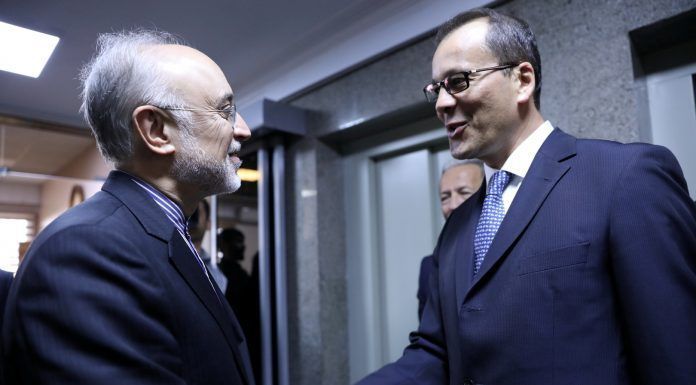VIENNA, Sept 9 (Reuters) – Iran has begun installing more advanced centrifuges and is moving towards enriching uranium with them even though that is forbidden under its nuclear deal with major powers, the International Atomic Energy Agency said on Monday.
The 2015 deal only lets Iran produce enriched uranium with just over 5,000 of its first-generation IR-1 centrifuge machines. It can use far fewer advanced centrifuges for research but without accumulating enriched uranium.
But in response to U.S. sanctions imposed since Washington withdrew from the deal in May last year, Iran has been breaching the limits it imposed on its atomic activities step by step.
Last week the Islamic Republic said it would breach the deal’s limits on research and development, the term applied to Iran’s use of advanced centrifuges.
An IAEA spokesman said Iran had informed it that it was making modifications to accommodate cascades – or interconnected clusters – of 164 of the IR-2m and IR-4 centrifuge. Cascades of the same size and type were scrapped under the deal.
Inspectors from the U.N. nuclear watchdog have verified that smaller numbers of various advanced centrifuges had been or were being installed, the spokesman added.
“All of the installed centrifuges had been prepared for testing with UF6,” though none of them were being tested with UF6 on Sept. 7 and 8, he said, referring to the uranium hexafluoride feedstock for centrifuges.
He added that Iran had told the agency it would modify lines of research centrifuges so that enriched uranium was produced, which is not allowed under the deal.
In a confidential report to member states, the IAEA also said Iran had made those modifications on some lines.
(Reporting by Francois Murphy Editing by Mark Heinrich)


